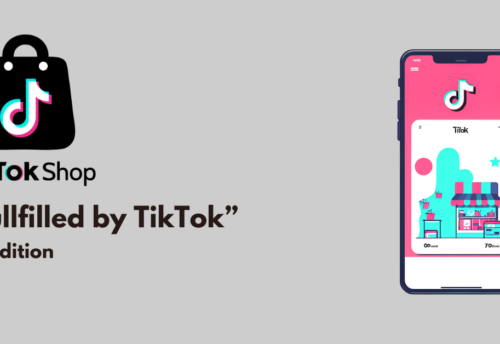
Is Amazon FBA Worth It? A Comprehensive Guide for Aspiring Sellers
In the ever-evolving world of e-commerce, Amazon has emerged as a dominant force, offering countless opportunities for entrepreneurs to build profitable businesses. One of the most popular ways to sell on Amazon is through its Fulfillment by Amazon (FBA) program. But with so much competition and varying opinions, the question arises: Is Amazon FBA worth it? In this blog, we’ll dive deep into the pros, cons, and everything in between to help you decide if Amazon FBA is the right path for your business.
What is Amazon FBA?
Before we answer the question, “Is Amazon FBA worth it?” let’s first understand what it is. Amazon FBA is a service that allows sellers to store their products in Amazon’s fulfillment centers. Amazon takes care of storage, packing, shipping, and even customer service for these products. In return, sellers pay fees for these services, but they gain access to Amazon’s massive customer base and Prime shipping benefits.
For many sellers, this model eliminates the hassle of managing inventory and logistics, allowing them to focus on growing their business. But is it the right choice for everyone? Let’s explore.
The Pros of Amazon FBA: Why It Might Be Worth It
- Access to Amazon’s Massive Customer Base
Amazon is the largest online marketplace in the world, with millions of active customers. By using FBA, your products become eligible for Amazon Prime, which can significantly boost your sales. Prime members tend to favor products with fast, free shipping, giving FBA sellers a competitive edge. - Time and Effort Savings
One of the biggest advantages of Amazon FBA is the convenience it offers. You don’t have to worry about storing inventory, packing orders, or dealing with shipping logistics. Amazon handles all of that for you, freeing up your time to focus on product sourcing, marketing, and scaling your business. - Credibility and Trust
Products fulfilled by Amazon often carry a sense of trust and reliability. Customers are more likely to purchase items that are shipped and handled by Amazon, as they know they’ll receive their orders quickly and in good condition. This can lead to higher conversion rates and increased sales. - Multi-Channel Fulfillment
Amazon FBA isn’t limited to just Amazon’s marketplace. You can also use it to fulfill orders from other sales channels, such as your own website or other e-commerce platforms. This flexibility makes it easier to manage your business across multiple platforms. - Global Reach
Amazon FBA allows you to tap into international markets with ease. Amazon’s global fulfillment network can help you store and ship products to customers around the world, opening up new revenue streams without the complexities of international logistics.
ALSO READ: How to Start and Scale Your Amazon FBA Business in 2025
The Cons of Amazon FBA: Potential Drawbacks to Consider
While Amazon FBA offers numerous benefits, it’s not without its challenges. Here are some potential downsides to keep in mind:
- High Fees
Amazon FBA fees can eat into your profit margins. These fees include storage fees, fulfillment fees, and referral fees, which vary depending on the size and weight of your products. For low-margin items, these costs can make it difficult to turn a profit. - Intense Competition
The Amazon marketplace is highly competitive, with thousands of sellers vying for the same customers. Standing out can be challenging, especially in saturated niches. You’ll need to invest time and money into optimizing your listings, running ads, and building a strong brand. - Inventory Management Challenges
While Amazon handles the logistics, you’re still responsible for managing your inventory. Overstocking can lead to high storage fees, while understocking can result in lost sales. Striking the right balance requires careful planning and forecasting. - Risk of Account Suspension
Amazon has strict policies and guidelines for sellers. Violating these rules, even unintentionally, can lead to account suspension or termination. This can be devastating for your business, especially if you rely heavily on Amazon for revenue. - Less Control Over Customer Experience
When you use Amazon FBA, you’re essentially handing over control of the customer experience to Amazon. While this can be convenient, it also means you have less control over how your brand is represented. For example, you won’t be able to include personalized thank-you notes or packaging inserts.
Is Amazon FBA Worth It? Key Factors to Consider
Now that we’ve explored the pros and cons, let’s address the big question: Is Amazon FBA worth it? The answer depends on several factors, including your business goals, budget, and willingness to adapt to Amazon’s ecosystem. Here are some key considerations to help you decide:
- Your Product Niche
Some products are better suited for Amazon FBA than others. High-margin, lightweight, and fast-selling items tend to perform well on FBA. On the other hand, bulky, low-margin, or slow-moving products may not be as profitable due to high storage and fulfillment fees. - Your Budget
Starting an Amazon FBA business requires an initial investment in inventory, marketing, and other expenses. You’ll also need to account for ongoing fees. If you’re working with a limited budget, it’s important to carefully calculate your costs and projected profits to ensure FBA is financially viable for you. - Your Long-Term Goals
If your goal is to build a scalable, hands-off business, Amazon FBA can be a great option. However, if you prefer more control over your operations and customer experience, you might want to explore other fulfillment methods, such as self-fulfillment or third-party logistics (3PL). - Your Willingness to Learn
Success on Amazon FBA requires a willingness to learn and adapt. You’ll need to stay updated on Amazon’s policies, optimize your listings for search, and continuously monitor your performance. If you’re willing to put in the effort, the rewards can be significant.
ALSO READ: Walmart Seller Account: A Beginner’s Guide to Selling on Walmart Marketplace
Tips for Success with Amazon FBA
If you decide that Amazon FBA is worth it for your business, here are some tips to help you succeed:
- Choose the Right Products
Conduct thorough market research to identify profitable niches and products with high demand and low competition. Tools like Jungle Scout or Helium 10 can help you analyze market trends and make data-driven decisions. - Optimize Your Listings
Your product listings are your storefront on Amazon. Use high-quality images, compelling copy, and relevant keywords to make your listings stand out. Don’t forget to include bullet points that highlight the key features and benefits of your product. - Monitor Your Inventory
Keep a close eye on your inventory levels to avoid stockouts or excess storage fees. Use Amazon’s inventory management tools to track your stock and plan for reorders. - Leverage Amazon Advertising
Amazon offers various advertising options, such as Sponsored Products and Sponsored Brands, to help you increase visibility and drive sales. Start with a small budget and scale up as you see positive results. - Focus on Customer Satisfaction
Positive reviews and high seller ratings are crucial for success on Amazon. Provide excellent customer service, address any issues promptly, and encourage satisfied customers to leave reviews.
Final Thoughts: Is Amazon FBA Worth It?
So, is Amazon FBA worth it? The answer ultimately depends on your unique circumstances and goals. For many sellers, the convenience, scalability, and access to Amazon’s vast customer base make FBA a worthwhile investment. However, it’s not without its challenges, and success requires careful planning, hard work, and a willingness to adapt.
If you’re willing to put in the effort and navigate the complexities of the Amazon marketplace, FBA can be a powerful tool for building a profitable e-commerce business. On the other hand, if you’re looking for a low-cost, low-maintenance business model, you might want to explore other options.
Ultimately, the key to success with Amazon FBA is to approach it with a clear strategy, realistic expectations, and a commitment to continuous improvement. With the right mindset and resources, you can turn your Amazon FBA venture into a thriving business.




Leave a Comment